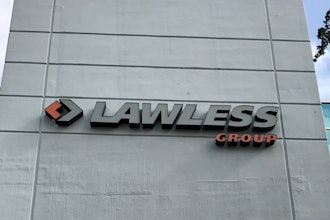
You survived the Y2K scare 20 years ago. Just take a minute to think about what a big deal that was. The world thought that all operating systems would crash. If you’re anything like me, the past 20 years have flown by. We have seen huge technological leaps that include autonomous cars, 5K streaming movies on smartphones and e-commerce comprising 10 percent of all retail sales since 2000.
Ask yourself, how has your business adapted over the past 20 years? Take a minute to think about how you interact daily with your customers. Then you go home and ask the spouse, "Did you need me to add anything to the Amazon order?"
Are you really giving your customers that world-class buying experience, and ease of doing business?
Let's face it, the industrial distribution industry has been slow to change and challenge the status quo for technology. Here are five solutions that distributors can to improve technology and the customer experience.
1. Punch-out & hosted catalog capabilities
Punch-out: Think of this as an active marketplace for your customers to improve the transaction PO process and streamline their interaction. How does it work? A customer will input a custom website link into their ERP system. The buyer will then search for the supplier within their ERP system to find the preferred supplier. They then click the custom link to your website set up for them. Once the customer is done shopping and placing items into the cart, the website will then Punch back into the customer's ERP system with all the necessary data to create the PO. This is a fairly easy setup to do for both parties, and simplifies the process.
Hosted: The supplier is to provide the accurate product data, price and description on a regular basis for the customer to create an internal electronic book of already approved parts and pricing into their ERP system. It’s an easier process for the customer when searching for items, and limits the time of RFQ's. However, this can require constant maintenance for both parties to ensure accurate data, and to limit invoicing issues later. From the supplier’s perspective Hosted does not require any special programming, but you have to give up data if you wish to participate.
2. Online ordering (including speak-to-order capabilities)
If you are reading this article, you are 57 percent likely to be doing so from a mobile phone. That statistic alone should scare you into understanding the importance of e-commerce future growth. MSC Industrial Supply, a national MRO products provider, said that 60.6 percent of its $743.9 million 2019 sales came through e-commerce. The web allows your competition to sell right into your dirt, and slowly erode your market-share.
“Alexa: Can you order me a DeWalt 12V drill combo?”: 32 percent of Alexa Owners reporting using voice shopping as a way to compare prices. As your business commoditizes even further, the importance will even be greater to advance into full e-commerce capabilities.
3. Becoming a trusted advisory with value-added electronic inventory ordering solutions
The first two solutions only help you defend your territory and offer your services to a broader reach online. Becoming the trusted advisor of your current and potential customers will keep the local competition at-bay. So, how do you do this? Let's first look at what services you offer today. Vendor managed inventory, integrated supply, production point-of-use, consignment — these are just a few that distributors are expected to offer in today's marketplace. All of these solutions require capital investment in technology and the most important in people. Companies are turning to their suppliers as a resource and extension of their business. They expect distributors to provide world-class services, addition to the belly to belly support to become a true trusted advisor in their business instead of sales rep running routes.
4. Vending & automation solutions
Vending solutions have changed industrial distribution drastically, creating visibility, control and increased productivity. There are multiple manufactures of these units on the market — all offering a little different strategy for how they go to market. Some require you to buy the equipment, while some lease it out. Be aware if not accounted for, the monthly data communication cost and insurance required for leasing can get pricy. However, these solutions are very impactful to your clients and improve the supply chain with controls. This also helps the distributor with data and smoothing of inventory stock levels. Most of these manufacturers for automated vending solutions will walk a distributor through the process step-by-step and also help with the consultation with the client.
5. Customer partnerships reviews to work towards KPI's.
The strength of purchasing has changed drastically in the last five to 10 years. Purchasing professionals are now making large business decisions that directly impact the bottom line. In order to ensure they continue to make smart educated decisions; they have implemented scorecards and key performance indicators (KPIs). These are used to gauge their suppliers and strive towards common cost savings goals. As a distributor you should be scheduling regular quarterly reviews with your customers to ensure you are on track to maintain that true partnership and working towards your customers goals, not yours.
 Adam Labadie
Adam Labadie






















